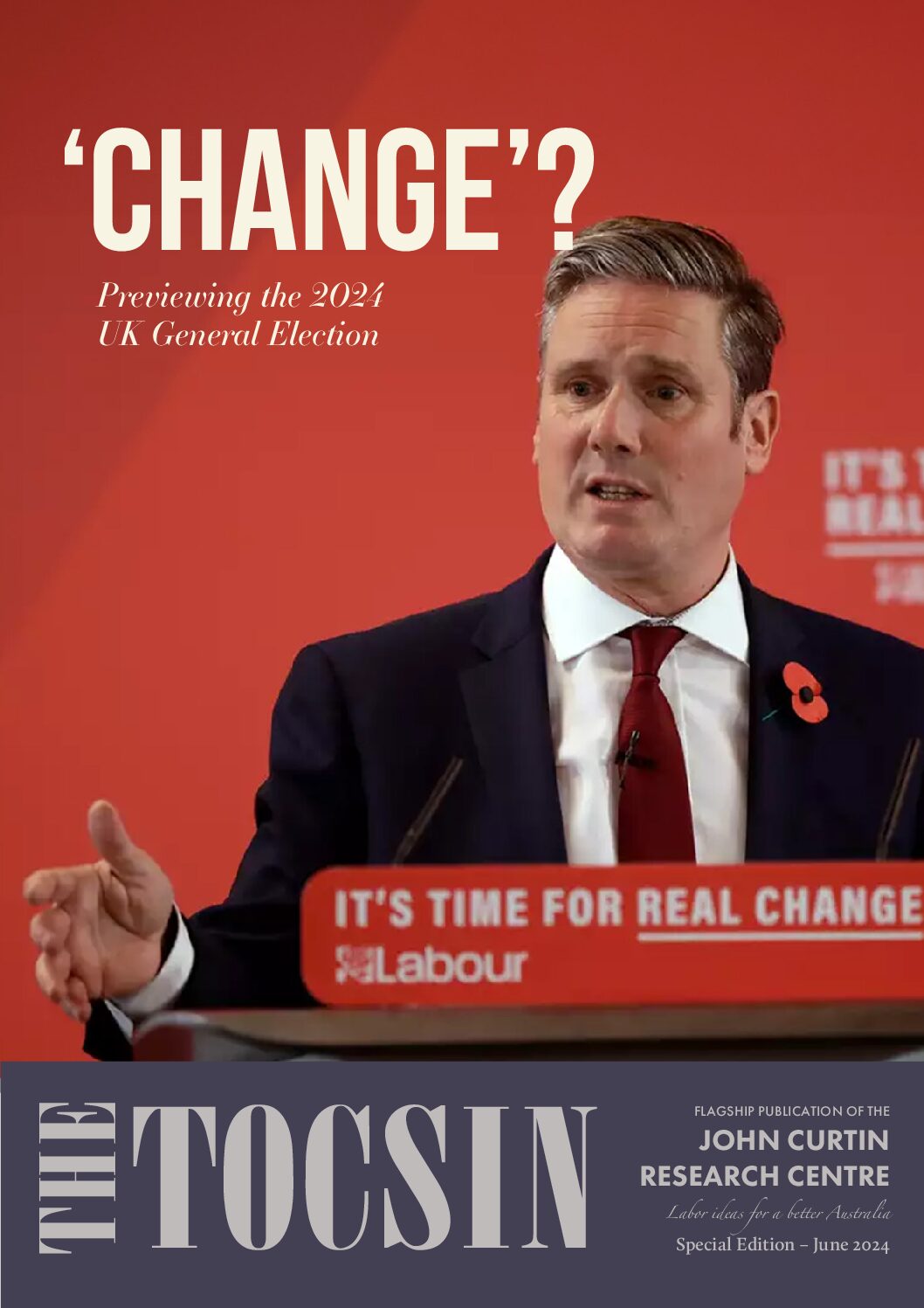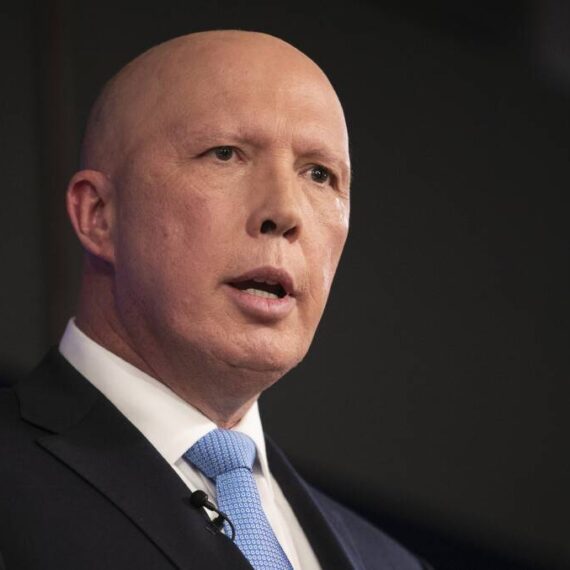According to legend, English teenagers possess a ”1066 and all that” knowledge of their country’s history. As the humorous book of the same name suggests, only two dates are remembered: Julius Caesar’s arrival in 55BC and 1066’s Battle of Hastings.
Today’s Australian Labor Party also has a limited sense of its past. Aside from the introspection of the Rudd/Gillard era, for many MPs and party members, history amounts to ”1983 and all that”. Gough Whitlam’s election in 1972, and Bob Hawke’s 11 years later, signify the alpha and omega of Labor history.
In the Labor pantheon, Whitlam modernised the party upon becoming leader in 1967. Labor’s organisational structure was reformed and membership widened to include middle-class ”progressives”.
Following the revisionist cue of British Labour intellectual Anthony Crosland, party policy was overhauled, focusing on expanding opportunity rather than traditional income redistribution. In office, Whitlam embarked upon an extraordinary reform program before attaining martyr status with his dismissal three years later.
The Hawke government implemented a less romantic, if no less sweeping, reform agenda: floating the dollar, deregulating the economy and privatising government assets. But where Margaret Thatcher carried this out in Britain by attacking unions, Labor worked with them by the Accord and by implementing a ”social wage” (Medicare and superannuation). Through an emphasis on prudent economic management and orderly decision making, Hawke believed he could avoid Whitlam’s fate. And that he did.
This is a simplistic sketch of those eras but, by and large, it is the authorised version of the ”modernising” era of Labor history. To borrow a phrase from Maurice Glasman, another British Labour Party thinker, Hawke Labor became the Platonic ideal of what a reformist Labor administration should look like.
Is it any wonder that the Rudd-Gillard governments, notwithstanding their flaws and crippling divisions, failed to live up to those mythological standards? Indeed, growing political nostalgia around the Hawke (and Keating) era is an increasingly repressive force upon Labor, weighing like a nightmare on the brain of the living.
Whitlam’s reforms, and the Hawke-Keating ”achievement” which those reforms made possible, had deleterious long-term effects. The party’s relatively small active membership is unhealthily skewed towards the inner-city middle class. MPs are drawn from an ever-shrinking gene pool. Policy-making resides almost entirely with the parliamentary party. Labor’s links with working-class people are weak.
Philosophically speaking, modern Labor places too much faith in the ability of centralised government or free markets to solve society’s problems. Other possibilities are barely considered. This trend began with Whitlam and reached its bureaucratic zenith with Kevin Rudd. Julia Gillard’s legislative legacy and personal decency cannot exculpate her from similar charges. Similarly, Rudd’s celebrity ways were a symptom and not the cause of Labor’s chronic leadership instability and governing malaise. Since Whitlam, the party has increasingly looked to a messiah for its salvation.
The ”1983 and all that” school of Labor history is simplistic in other ways. As historian Paul Sendziuk has shown, when the AIDS crisis hit Australia during the 1980s, there were calls for the isolation of those with the disease. Hawke government health minister Neal Blewett stared down the fear-mongers. Public information campaigns targeted the areas where gay men lived and socialised, and the community, rather than markets or the state, spread a message of mutual responsibility. AIDS was brought under control and Australia became a role model for other countries. Yet how many Labor MPs would identify this as a truly great Hawke government legacy?
Asking why the Rudd-Gillard era ended in tears requires serious self-reflection. Labor believed the global financial crisis and climate change would play into its hands. Yet the ”debt and deficits” debate and carbon pricing proved electorally devastating. The mining tax farce represents a once-in-generation defeat for Labor. A business-as-usual approach to opposition, notwithstanding Tony Abbott’s early troubles, will clearly not suffice. Yet, the best place to begin the soul-searching is not 2013 but 1983.
None of this is to argue that these governments did not change Australia for the better – we are wealthier, more open and dynamic because of them. Rather, long-dead governments cannot write Labor’s 2016 election policy manifesto – the mobile-phone and internet-free world of 1983 is no longer a useful guide to our globalised world.
Nor is this navel-gazing. The wasted years of opposition during the Howard era, when Labor failed to reform its internal structures, think through its philosophical underpinnings, or map out a coherent policy agenda, contributed to the failings of the Rudd-Gillard years. Labor will need to be intellectually prepared for government next time around, and needs a critical sense of where it has come from, and where it is going.
Key to this task will be rediscovering Labor’s lost traditions. The much-maligned ”craft” unionists of the 19th century, for instance, sought to improve their lot without exclusive reference to the state. Wages were a central concern, but the unions they built from workplaces of printers, carpenters and others, aimed at so much more.
At a time when the welfare state did not exist, unions acted as benefit societies that provided workers and their families with a form of income insurance in the event of accident, illness or unemployment. In the event of death, a worker avoided the ignominy of a pauper’s burial. These unions promoted self-respect and dignity, and fostered trust and obligation among their members. Importantly, along with early Labor, they were concerned about what their movement wanted to conserve as much as what it hoped to change, namely the so-called ”Workingman’s Paradise” of high wages and social mobility.
The early influence of English-inspired ethical socialism is another lost tradition. Writing in 1909, Labor MP and Australian Workers’ Union leader William Spence argued that Labor’s focus was ”the bread and butter question”, but maintained that it was also ”dominated by two moral convictions: the Ethic of Usefulness and the Ethic of Fellowship”.
With Labor in power, Spence envisaged ”an active and enlightened democracy”. Shorter working hours and better wages were not an end in and of themselves but would allow workers and their families to participate fully in their communities, voluntary organisations and politics. Spence wanted to create a good life for all based upon an ethical understanding that markets needed regulation but that governments could not solve every ill.
The intellectual vibrancy of early Labor is ripe for rediscovery too. Did you know that early NSW Labor included a few anarchists? Or that the single-tax movement originating from the United States influenced Spence, whose own socialist thought derived something from Marx as it did from Christian teachings? He was, after all, a Methodist lay-preacher. Others owed their political education to Catholic social thought.
In part, the liberation of Labor politics has begun. Figures such as Chris Bowen, Andrew Leigh and former leader Mark Latham have made separate book-length contributions. Bowen and Leigh argue that Labor should become Australia’s party of economic and social liberalism. Leigh’s is the most intellectually substantial, moving beyond Bowen’s plea for Labor to become the party of ”growth” and ”opportunity”.
Bowen’s call for a ”debate” over scrapping Labor’s moribund ”socialist objective” is meaningless. And both are wrong to call for Labor to become a ”liberal” party. Largely speaking, it is that party, and a further move in that direction is a dead-end political trajectory.
Latham is Labor’s great ”what if?” leader. Foibles aside, he published thoughtful books and was attentive to overseas developments, such as British Labour’s ”Third-Way”. His recent book Not Dead Yet: What Future for Labor, calls for Labor to adopt a ”light-touch social democracy”. Unfortunately, Latham’s critique of progressive statism is unable to comprehend that markets can be socialised by forces outside of the state. Perhaps, then, Labor might again look to Britain for inspiration. Specifically, Glasman’s Blue Labour movement could provide the means of escaping the nightmare of 1983.
Maurice Glasman is not a household name in Australia, despite visiting here in July. In Britain, the former academic, community organiser, and Labour life peer in the House of Lords, was for a time around 2011 akin to a political rock star. A follower of Jewish tradition, Glasman’s eclectic influences include Aristotle, Miles Davis, Lionel Messi, the Pope, and the Hungarian economist Karl Polanyi.
Blue Labour emerged after British Labour’s 2010 election defeat, in part as a reaction to Tory Prime Minister David Cameron’s ‘Big Society’ vision. Highly critical of free-market globalisation and progressive statism, Glasman wants Labour to re-embrace a ”small-c conservative form” of what he calls ”socialism” or ”radical conservatism”, one that places ”family, faith and work at the heart of a new politics of reciprocity, mutuality and solidarity”.
For Glasman, Labo(u)r politics begins from the assumption that the tendency of the state and the market to treat human beings and the environment as commodities must be resisted. As a communitarian, he believes that individuals flourish best when their lives are given meaning beyond the world of the market, or being told what to do by government, and are instead rooted in voluntary institutions such as faith traditions and unions.
The controversial starting point of Glasman’s ideas is the golden era of British Labour. He argues that Clement Attlee’s iconic post-1945 government built a ”bureaucratic” Keynesian welfare state. That statist approach encouraged passivity and dependence rather than active democratic citizenship. In the 1990s, Tony Blair’s New Labour capitulated to the vagaries of global capitalism, and became preoccupied with abstract concepts such as ”fairness”, leaving the voting public cold. ”Life”, Glasman insists, ”is about the people that you love and not about ends and ideals”. Labour should instead devote itself to strengthening the democratic fabric of society, beyond that of Westminster, including its economic institutions. As such, Glasman advocates a new relationship-based politics, inspired by German social market ideas such as employee representation on company boards (co-determination).
Blue Labour is not without its critics. It has, wrongly in my opinion, been described as anti-immigrant and sexist. Glasman’s fondness for ”tradition” and ”patriotism” attracts barbs of nostalgia. By the summer of 2011, commentators proclaimed the movement still-born. But reports of Blue Labour’s demise were greatly exaggerated, as the party’s recent ”One Nation” policy review amply demonstrates. ”Caring, earning and belonging” is its motto.
What might Blue Labour have to offer Australian Labor circa 2014? Philosophically-speaking, it provides an opportunity to rethink Labor’s statist liberalism. This is not to argue that the market economy should be superseded, far from it. There is scope for arguing that certain state-owned enterprises – Medibank Private springs to mind – are better off in privately owned hands, albeit paired with social market-style mechanisms.
Then there is Glasman’s idea that Labo(u)r governments exist in order to redistribute power and wealth, rather than expand the state to redistribute wealth without power. Indeed, the destruction of a statist form of Labor politics holds within it the promise of actually rebuilding public trust in social democratic institutions and may ease the pressure on Labor governments to live up to the hallowed standards of 1983.
There are a number of specific policy areas in which Blue Labour ideas are applicable. The first, and perhaps most controversial, relates to the welfare state. Gillard Labor made some headway as regards the overdue means-testing of middle-class welfare. What is needed, however, is not a reduction or increase in welfare payments per se but wholesale decentralisation of its bureaucratic nature. Welfare policy should be conceived of and delivered with local expertise and knowledge in mind. Perhaps by local councils.
Welfare also needs an increased sense of mutuality. ”Work for the dole” has a bad rap – the phrase itself was a very poor start – but the central premise behind it, at least from a non-punitive point of view, upholds the inherent dignity of work. Or, in Glasman’s words, ”All forms of meaningful human society are based on reciprocity.”
The recent announcement of Holden’s closure and the ongoing scandal that is energy prices also mean that co-determination, whereby the community and employees have a say in company operations, is worth considering. And if Labor harbours dreams of reviving the 1980s style Accord, it is to this model that it should look, with workers co-operating with employers to boost productivity and innovation, but also tackling issues around childcare, transport and flexible work arrangements.
More broadly, Labor might rethink how it presents itself to the electorate. On climate change, for example, rather than call itself ”progressive”, Labor should be the party of small ”c” conservatism, as opposed to the radical Coalition – true Burkean conservatives would insist upon the duty we owe to future generations – and Green utopianism. Laborites committed to same-sex marriage listen up: enough talk about progressive ”equality”. Instead stress that this conservative institution will promote committed, loving relationships.
If Labor allows itself more room for ideological flexibility there is reason for optimism. The trick is to understand the paradoxes of modern politics.
As a recent European centre-left publication notes: ”People want governments to protect them from the myriad insecurities created by globalisation and economic change, but they also want to be empowered with more choice and control in their lives, not centralised bureaucracy.” Addressing this challenge is Labor’s key task in opposition. A thoughtful adaptation of Blue Labour’s radical conservatism might just do the trick.
The events of 1066 took place after King Edward III’s death, following a reign of 23 years. Heirless, Edward’s passing ignited a three-way contest for the crown that resulted in the destruction of the Anglo-Saxon rule. But England lived on, and through worse besides.
So too will Australia’s oldest political party. Embracing a different vision to that championed by earlier Labor monarchs might be the hardest part.





